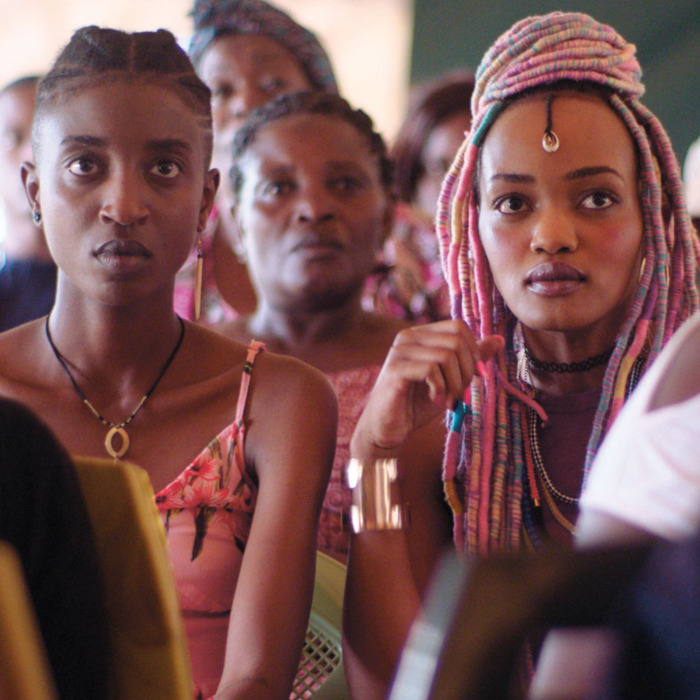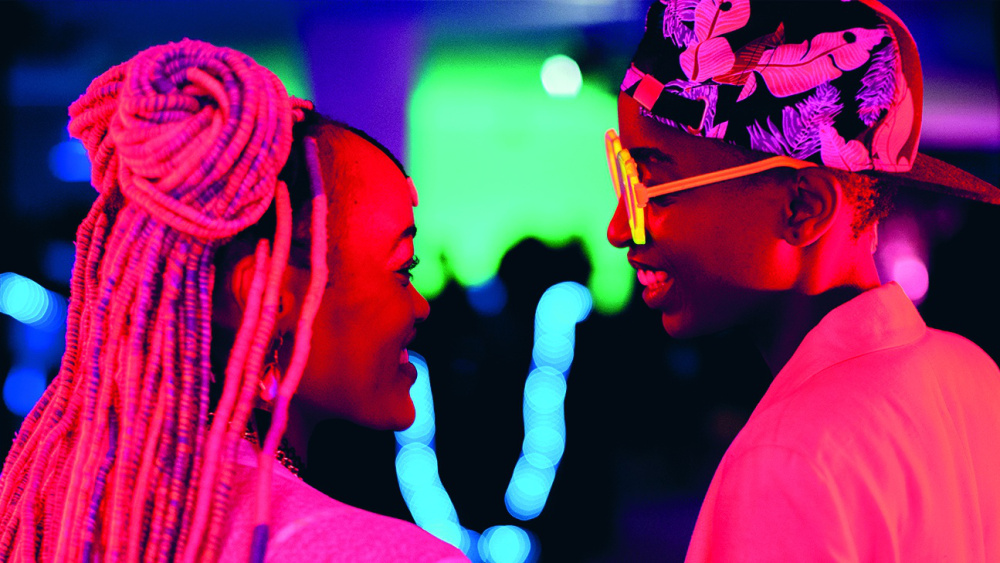by Chris Feil
 Already famed for being banned in its home country of Kenya for having a positive outlook on its lesbian lovers, Rafiki is a mostly conventional coming out and of age tale. That is if you wish to divorce it from its very specific context in African cinema. A teen love story less interested in breaking narrative molds than it is environmental ones, Wanuri Kahiu’s debut stands out by presenting queer people within its own vision of contemporary Nairobi. While its expected beats and the familiarity of its narrative trajectory present some limitations to our enthusiasm, the film comes alive mostly by creating a palpably real world.
Already famed for being banned in its home country of Kenya for having a positive outlook on its lesbian lovers, Rafiki is a mostly conventional coming out and of age tale. That is if you wish to divorce it from its very specific context in African cinema. A teen love story less interested in breaking narrative molds than it is environmental ones, Wanuri Kahiu’s debut stands out by presenting queer people within its own vision of contemporary Nairobi. While its expected beats and the familiarity of its narrative trajectory present some limitations to our enthusiasm, the film comes alive mostly by creating a palpably real world.
Which isn’t to say that Rafiki sidelines its gayness. Moreso Kahiu's insight delineates the where and whens that the film’s loves can and cannot safely be their full selves. Seldom is the separation of gay safe space made so clearly and abruptly, and especially the ability of language (and not just hate speech) to alter that. It’s a micronuance of the gay experience, particularly for women of conservative backgrounds, that helps Rafiki stand out.
The film’s two lovers await the results of their final exams that will determine their coming fate and their fathers are opposing candidates running for local office. Kena is more reserved, downplaying her efforts and blending in with a group of male friends and maneuvering around her mother’s fervent evangelicalism. Ziki is more demonstrative, dancing with her pristinely feminine friends on the street and approaches Kena warmly when those friends deface campaign posters for Kena’s father. Affection comes quickly between their knowing glances and shared discomfort at crueler, watchful eyes on their new friendship. With Samantha Mugatsia as Kena and Sheila Munyiva as Ziki, Kahiu has found two gifted, naturalist performers that give the film a heart that her laid back tone sometimes misses elsewhere.

Theirs is an escapist union, stealing away to a romantic hideaway van or the neon glow of a nightclub promising anonymity, their shared longing of not becoming a “traditional” Kenyan woman. Kena is largely our vantage point, with Ziki pushing the boundaries of Kena’s ambitions and emotional expressiveness. A subtle class divide between them goes largely unspoken, with the finer comforts of Ziki’s home and her mostly silent parents standing in stark contrast to the fundamentalism and barely contained resentments in Kena’s.
Built from the director’s film movement genre known as Afrobubblegum and adapted from the short story “Jambula Tree” by Jenna Cato Bass, Rafiki is vibrantly rendered if still emotionally distanced. Kahiu takes a casual approach to the teenagers, making for a film less invigorating than it should be and one still with some value to its lower temperature. While this allows us to be frustrated by the familiar in the narrative, Rafiki is a film you can relax into its details before things turn sour. But though the film does deal with egregious homophobia, hate crimes, and religious anti-gay ceremony, Kahiu has grafted the film with a light, joyful undercurrent that makes the attempted uplift that follows genuinely felt. Whereas other films might make Ziki and Kena’s trials tell a story of queer suffering, Kahiu’s is one of sweetness.
Grade: B-